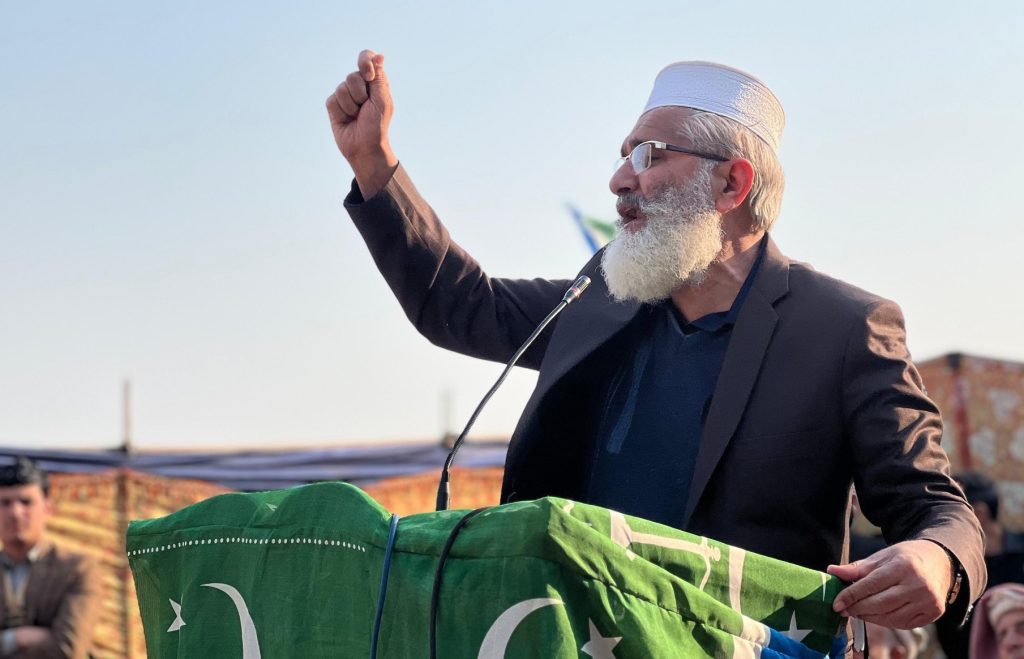ISLAMABAD: Jamaat-e-Islami Chief Siraj-ul-Haq refuted allegations suggesting that Pakistan Tehreek-e-Insaf (PTI) secured power in Khyber Pakhtunkhwa (KP) as a result of electoral rigging.
Speaking to Khyber News Maraka, Siraj-ul-Haq said that the people of Khyber Pakhtunkhwa did cast their votes in favour of PT. But he sat that the people decision was not solely based on the party’s performance. Instead, he pointed towards what he perceived as biased actions from the caretaker government and the Election Commission of Pakistan. Furthermore, he underscored the impact of court rulings against PTI leader Imran Khan, suggesting that these factors influenced voters to sympathize with PTI.
Regarding his own electoral loss in his constituency, Siraj-ul-Haq acknowledged the significant presence of Jamaat-e-Islami in Dir. Despite this, he admitted PTI’s success in the elections, attributing it to reactions against legal actions directed towards Imran Khan and PTI. He also criticized the Pakistan Democratic Movement (PDM) government for failed policies, a contributing factor to PTI’s victory.
In response to inquiries about of not managing elections in Khyber Pakhtunkhwa (KP), particularly considering the alleged support of a specific party and the perceived victimization of PTI elsewhere in Pakistan, Siraj-ul-Haq said that it was Establishment’s strategy to establish a mixed government at the national level while distributing provincial governance among various parties. This, he proposed, could explain why PTI was permitted to assume power in KP.
Talking about rigging in Karachi, Siraj-ul-Haq said that Jamaat-e-Islami emerged victorious in six constituencies according to Form 45, yet the Muttahida Qaumi Movement (MQM) was declared winners in the fifth and sixth positions. He argued that PTI also secured victories in several contested constituencies and advocated for the rightful return of these seats to the party.
Accusing caretaker governments of favoritism, particularly towards the PML-N, Siraj-ul-Haq said that not only was the party favored, but the entire electoral machinery was utilized in its support. He criticized the Election Commission for failing to ensure transparent elections, resulting in what he described as a weak and mandate-stealing government instead of one genuinely backed by the public. He further claimed that national and international entities, including media outlets, European countries, and the United States, acknowledged the presence of rigging in the elections. Demanding an election audit, Siraj-ul-Haq criticized the Election Commission and judiciary for failing to fulfill their duties in ensuring free and fair elections, noting that both winners and losers had raised allegations of rigging.
Regarding JI future strategy, he said that Jamaat-e-Islami, having contested elections independently after a long gap, garnered increased support, receiving more votes than in previous elections. The party pledged to focus on electoral reforms and advocated for the introduction of proportional representation in the country’s electoral system.


